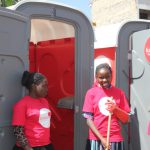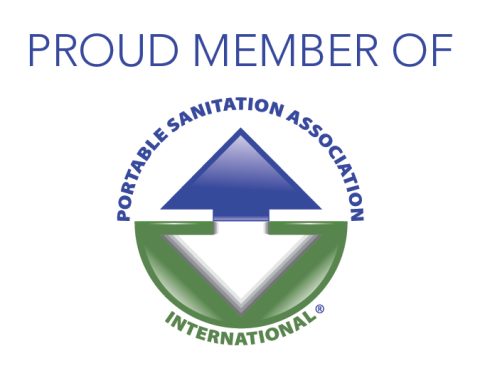
Urbanization is a global phenomenon that brings many benefits, such as economic growth, social development, and cultural diversity. However, it also poses many challenges, such as environmental degradation, congestion, and inadequate infrastructure. One of the most pressing issues facing urban dwellers is the lack of access to safe and hygienic sanitation facilities, especially in slums and informal settlements.
According to the World Health Organization (WHO), in 2022 57 % of the global population (4.6 billion people) used a safely managed sanitation service. Over 1.5 billion people still do not have basic sanitation services such as private toilets or latrine. This exposes the latter to various health risks, such as diarrheal diseases, intestinal worms, cholera, typhoid, and hepatitis. Poor sanitation also affects the environment, as untreated human waste pollutes water sources, soil, and air.
One of the possible solutions to this problem is the use of portable toilets, which are self-contained units that can be easily transported, installed, and maintained. Portable toilets can provide a convenient and dignified option for people who do not have access to permanent or piped sanitation facilities. They can also reduce the environmental impact of human waste, as they can be emptied and cleaned regularly, and the waste can be treated and disposed of safely.
In this blog post, we will explore how portable toilets can improve urban sanitation and health in Kenya, a country that faces many challenges in providing adequate sanitation services to its growing population.
The Situation of Urban Sanitation and Health in Kenya
Kenya is one of the fastest urbanizing countries in Africa, with an urban population of 31.3% in 2019, projected to reach 46.6% by 2050. However, urbanization in Kenya is often unplanned and unregulated, leading to the proliferation of slums and informal settlements, where more than half of the urban population lives.
According to an article by World Vision, from the 2019 Kenya’s census report, 7.4% of households lacked proper facilitation facilities that is only 29.8% access to piped sewer systems, while 38.9% use pit latrines, 11.6% use septic tanks, and 8.4% use buckets or other methods.
These statistics indicate that many urban dwellers in Kenya lack access to safe and hygienic sanitation facilities, which poses serious health and environmental risks. Kenya is yet to realize its vision for a clean, healthy and prosperous free from sanitation and hygiene related diseases according to the Kenya Environmental Sanitation and Hygiene Policy 2016-2030 (KESHP).
The Role of Portable Toilets in Improving Urban Sanitation and Health in Kenya
Portable toilets can play a significant role in improving urban sanitation and health in Kenya, especially in slums and informal settlements, where space is limited, water is scarce, and waste management is challenging.
Some of the benefits of portable toilets for urban planning in Kenya are:
- They can improve the quality of life and dignity of urban dwellers, as they can offer privacy, comfort, and security. They can also reduce the exposure to open defecation, which can cause social stigma, harassment, and violence.
- They can improve the health and hygiene of urban dwellers, as they can prevent the transmission of fecal-oral diseases and infections. They can also promote behavioral change, such as handwashing and proper disposal of menstrual hygiene products.
- They can improve the environment and sustainability of urban areas, as they can reduce the contamination of water sources, soil, and air. They can also contribute to resource recovery, such as biogas production, fertilizer generation, and water reuse.
- They can create economic opportunities and social inclusion for urban dwellers, as they can generate income and employment for local entrepreneurs, who can provide portable toilet rental, maintenance, and waste management services. They can also empower marginalized groups, such as women, children, elderly, and disabled, who can access portable toilets more easily and safely.
However, portable toilets also face some challenges and limitations, such as:
- They require adequate infrastructure and logistics, such as roads, vehicles, and storage facilities, to ensure their transportation, installation, and maintenance. They also require reliable and affordable sources of water, electricity, and chemicals, to ensure their functionality and cleanliness.
- They require appropriate regulations and standards, such as permits, licenses, and fees, to ensure their compliance and quality. They also require effective monitoring and evaluation, such as inspections, audits, and feedback, to ensure their performance and satisfaction.
- They require sufficient awareness and acceptance, such as education, communication, and marketing, to ensure their adoption and usage. They also require adequate participation and involvement, such as consultation, collaboration, and co-creation, to ensure their suitability and sustainability.
Conclusion
Portable toilets can be a viable and valuable option for improving urban sanitation and health in Kenya, but they need to be carefully planned, designed, and implemented, taking into account the local context, needs, and preferences of the urban dwellers. They also need to be integrated with other sanitation solutions, such as sewerage systems, septic tanks, and pit latrines, to ensure a comprehensive and holistic approach to urban sanitation.
We are proud of making a difference in this industry. We not only rent out portable toilets, but also support a noble cause: educating children from disadvantaged backgrounds. By using our loos, you are not only taking care of your sanitation needs, but also supporting the education empowerment of children from disadvantaged backgrounds through Ngong Road Children’s Foundation.
Karibu Loo is a win-win proposition: you get to enjoy a sanitary and pleasant toilet experience, while also making a positive impact on the lives of vulnerable children.






